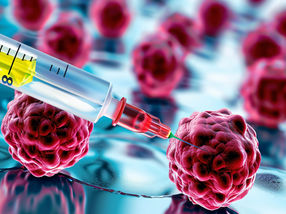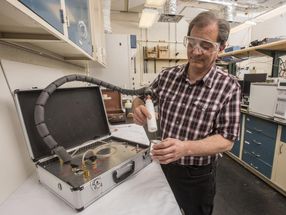University of Hawaii Licenses Diversa Patent for DNA Sequence-Based Discovery from Environmental Sources
San Diego. Diversa Corporation (Nasdaq: DVSA) has provided the University of Hawaii a non-exclusive research license to its patent directed to the sequencing of DNA from life forms present in environmental samples, company officials announced today.
The University of Hawaii sought the license for its Center for Marine Microbial Ecology and Diversity (CMMED), which has been providing genetic material from environmental samples to Diversa since 2003 through a Biodiversity Collaboration Agreement. CMMED intends to perform additional research on the samples it has obtained from unique Hawaiian environments. Under the agreement, CMMED scientists will be permitted to use the licensed technology to identify genes that have been sequenced from environmental samples. The licensed technology makes it possible to identify genes from environmental samples more efficiently and in greater quantities than traditional methods allow.
The license of the environmental DNA sequencing technology is the second one to be announced by Diversa. In May 2003, the U.S. Department of Energy's Joint Genome Institute signed a license agreement with Diversa as part of a large-scale microbial sequencing collaboration. Under the collaboration, Diversa uses its proprietary technologies to extract DNA from environmental samples and construct gene libraries that can contain essentially all of the genes of over 10,000 unique microbes, referred to as "metagenome libraries." JGI is primarily responsible for sequencing the DNA from these libraries. JGI is one of the world's largest capacity gene sequencing centers and played a vital role in the publicly funded Human Genome Project.
"This license is part of a broader, mutually beneficial relationship we have established with the University of Hawaii involving potential new products and scientific discoveries from unique Hawaiian environments," stated Jay M. Short, Ph.D., Diversa's President and Chief Executive Officer. "At the same time that Diversa is fostering basic academic research, this license leverages our product discovery capabilities by providing Diversa with commercial access to new genes identified by the academic researchers. We expect that other institutions that are interested in microbial community metagenomic sequencing will follow the lead of the Department of Energy and the University of Hawaii and seek a license to Diversa's patented technology."
"The University of Hawaii is extremely excited to be working with Diversa Corporation and we are grateful for Diversa's support of our scientific and educational efforts related to the discovery of unique genetic materials from the rich biodiversity found in Hawaii," said Dr. Robert Bidigare, Director of the UH Center for Marine Microbial Ecology and Diversity. "Not only will the licensing of this technology provide our faculty, researchers, and students with access to new genomic tools that they need to continue and expand their work, but it will also prove beneficial in our current efforts to establish the university as a collaborator in industry research and a contributor to the economic diversification of our state."
Technical Language of Diversa Patent US 6,455,254 The claims of the licensed patent include, among others, a claim directed to "a method of obtaining a nucleic acid encoding a polypeptide comprising: sequencing a plurality of nucleic acids selected at random from a nucleic acid library generated randomly from the genomes of a plurality of members of a mixed population of organisms or more than one organism; and performing a database search to compare sequences of the randomly selected nucleic acids to sequences in the database."
Topics
Organizations
Other news from the department research and development

Get the life science industry in your inbox
From now on, don't miss a thing: Our newsletter for biotechnology, pharma and life sciences brings you up to date every Tuesday and Thursday. The latest industry news, product highlights and innovations - compact and easy to understand in your inbox. Researched by us so you don't have to.























































